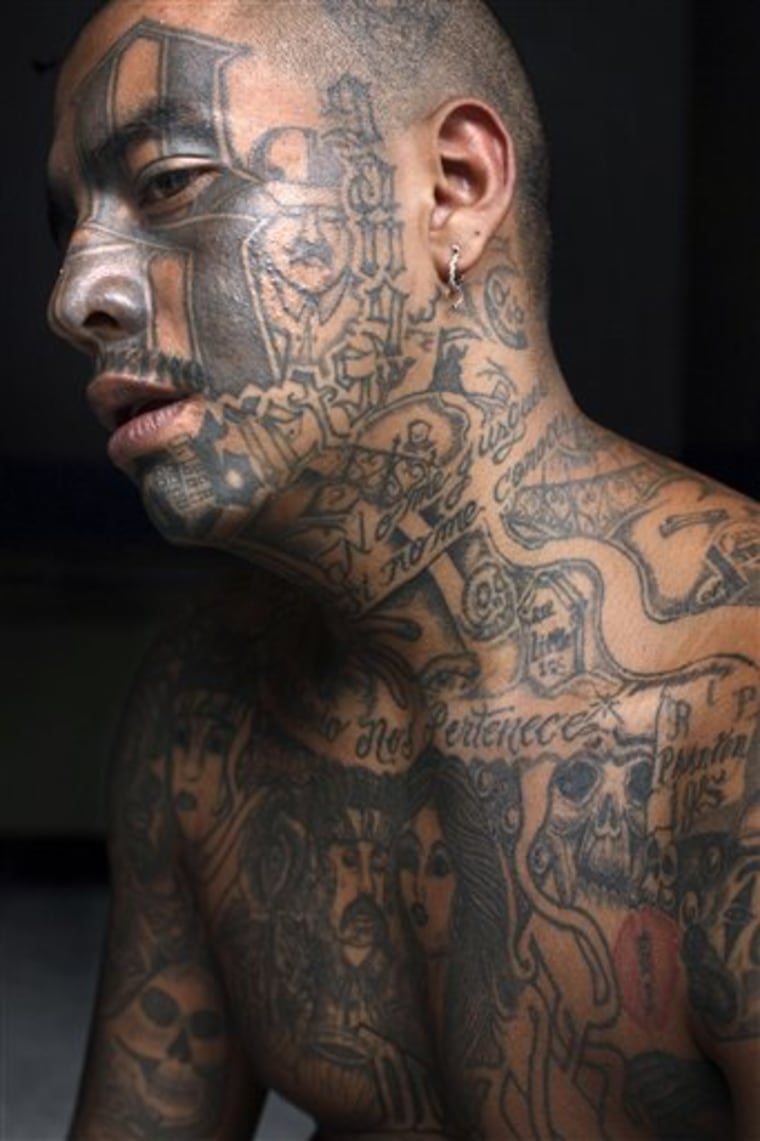Tattoos, baggy pants and tank tops are out. Smart blazers and university recruits are in.
It's an extreme makeover for Central America's gangs. Facing harsh crackdowns by government security forces and citizen vigilante groups, they are trying to lower their profile.
The Mara 18 and Mara Salvatrucha gangs are known throughout Central America and the U.S. for their brazen tactics, including beheading their enemies and covering entire buildings and even their bodies with gang symbols.
Now, according to anti-gang operatives, these traditionally uneducated and aimless youth have begun recruiting high school and college students, and are expanding their criminal repertoire from minor robbery to large-scale extortion, prostitution, car theft and kidnappings.
The gangs first formed in Los Angeles in the 1980s, attracting Salvadorans who fled to the United States to escape civil war. A decade later, after many of the members were deported for crimes committed in the United States, the gangs established themselves in Central America.
The maras are believed to number about 100,000 in Guatemala, El Salvador, Honduras and Nicaragua. As many as 30,000 also operate in the United States, mostly in Los Angeles, according to U.S. federal authorities.
Goal of intimidation backfires
Setting themselves apart by tattooing themselves head to toe with threatening symbols and hanging out in large crowds on street corners, their goal was to intimidate law-abiding citizens and rival gangs alike, experts say.
That has changed recently, after El Salvador, Guatemala and Honduras adopted tough anti-gang policies, including graffiti-removal campaigns and harsh punishments for gang-related crimes. Many youths have been arrested or killed, allegedly in operations by police or citizen's groups.
"These days we can't even go out onto the street, where the police look at us and we end up dead," said Giovanni Estrada, 25, an imprisoned gang member with tattooed face who goes by the nickname of "Little Crazy." "That's why we tell (new gang members) not to paint their faces."
Both Sammy Rivera, a security adviser for the Narcotics Affairs Section of the U.S. Embassy in Guatemala, and Jose Luis Tovar, deputy police chief in El Salvador, say the gangs' increasingly lucrative pursuits have attracted high school and college students looking to make a buck. It's a breed apart from the dropouts and other gang members whose main aim was a need to belong.
"Before they would rob a bus and could take away some cell phones and a little money," Rivera said. "Now they have a steady income from the extortion they carry out in their territories."
Woman gives up everything for gang
Ingrid Vicente left her husband, two children, government job and law studies to join a gang in 2002. As a secretary at the Finance Ministry, she earned 2,000 quetzales a month. She doubled that in one day as a gang member.
Because she didn't look like a typical mara, she easily smuggled guns from El Salvador, earning about $650 a day. She also helped uneducated gang members figure out how much they could extort from a storekeeper without bankrupting him.
"These guys don't know what is possible," Vicente told The Associated Press. "They didn't even know how to drive a car or a motorcycle, so I showed them how to drive."
But then she discovered the price. After having two more children with a gang member, she decided to quit. In retaliation, her gang killed her brother and her boyfriend. She is now a witness, testifying against the others.
Gangs have been forced to recruit people like Vicente to stay ahead of the government's zero-tolerance policies, which have forced them underground — and into new areas of crime.
No longer able to conduct brazen robberies, the gangs have turned to "other activities that require a better level of organization," Rivera said.
And although the graffiti is gone and the walls are blank, said Guatemala City resident Aura Escobar, "we still hear gunshots every day."
